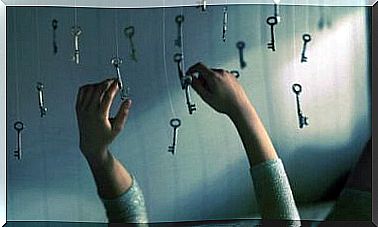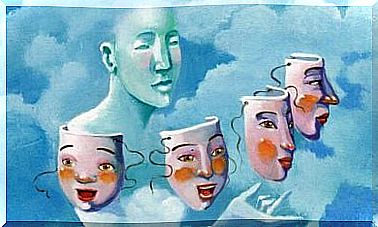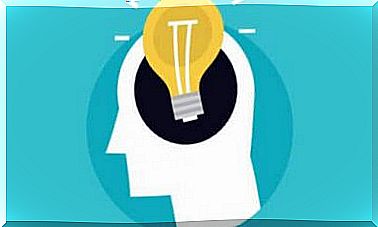The Effect Of Music Therapy On Your Body

The effect of music therapy is closely linked to the effect that music has on people in general. Think about it.
How many important moments in your life are associated with music? How many situations turn into something unique and special because of music? Music is a universal form of communication.
The positive effect of music in people’s lives is quite obvious. Thus, there is no doubt that we can use it as a therapeutic tool.
Music therapy is just what it sounds like: a type of therapy that uses music to treat patients. In this article, we will go a little deeper into this concept and describe the most important techniques of music therapy.
What is music therapy?
Music therapy is a method that uses music and sound to establish the communication and connection that is necessary to achieve therapeutic goals.
The goal of music therapy, as with most therapies, is to improve the patient’s health and quality of life on physical, emotional, and cognitive levels.
People with brain damage, fatal diseases, dementia, mental health problems and autism can especially benefit from the effects of music therapy.

In 1950, Paul Nordoff, a composer and pianist from the United States, and Clive Robbins, a British special educator, began collaborating on a therapy that used music as its cornerstone.
Later, they created the Nordoff-Robbins Center for Music Therapy to improve the quality of life for people in need of neurological rehabilitation.
They discovered that when their patients had the opportunity to actively create music, they made better progress than anyone expected.
As a result, they had empirical evidence for the idea that experimenting with music stimulates the brain at a level no one previously knew.
In other words, their work provided evidence that defended the positive effects of music therapy.
Concrete music therapy techniques
Music therapists use various concrete techniques for individual therapy and group therapy.
- Instrumental improvisation. Vaillancourt (2009) defines instrumental improvisation as “using musical instruments to express oneself spontaneously”. It involves offering the patient musical instruments and letting them manipulate it freely.
- Vocal improvisation. Vocal improvisation involves using the voice to express oneself. Therapists can guide their patients to play with word-based improvisation or imitate natural sounds. For example, a patient can use his voice and body to imitate the sound of a bird, the sea, a storm or rain.
- The music therapist can play a song for the patient or play an instrument and ask the patient to reproduce a certain sound and / or sing along.
- Listen to different pieces of music to stimulate and open the patient’s senses.
What is the effect of music therapy on the brain?
Music has certain components that have a positive effect on the brain. Music actually stimulates the production of serotonin, the “happiness hormone”. It also promotes changes in your brain chemistry and creates a sense of well-being.
Researcher Robert Zatorre describes the neuronal mechanisms of musical perception. He says that the music you listened to in the past conditions your brain’s response.
This is because the brain has a database that contains stored information about all the melodies it has heard before.
Consequently, Zatorre claims that the effect of music therapy on the brain is overwhelmingly positive. What we know for sure is that music can awaken past neural connections and transfer memories to your conscious consciousness.
Cognitive benefits
Music therapy also contributes to the restoration of memory as it stimulates certain cognitive areas, such as language and attention.
According to the Spanish musician Javier Alcántara, musical abilities and musical memory are the last thing that disappears. That is why one of the goals of music therapy is to improve / preserve memory and cognitive abilities.
This is especially relevant for people with dementia.
Emotional expression
Nordoff-Robbins method believes that music therapy helps people to remember things and express feelings that they would not be able to do otherwise.
Playing an instrument allows the individual to express through music something that he would have difficulty talking or writing about.
Giving patients the opportunity to make music also helps the therapist understand their patients’ emotional state through the sounds they make and how they act with the instruments.
This is why experts see music therapy as a powerful tool for emotional expression. It has a positive effect on self-esteem, motivation and how patients manage their emotions.
The physiological and muscular effects of music therapy
According to a study by researcher John Nida, music can alleviate the effects of stress and improve breathing and relaxation. This is because it uses pleasant and attractive sounds and stimuli.
Socialization
Music therapy also improves verbal expression and increases non-verbal communication skills.
In general, music stimulates communication skills because it requires active listening, pause between songs, sense of rhythm, etc.
These parts also apply to everyday life and social relationships. Thus, practicing these things during music therapy will also help the patient out in the world.
There is no doubt that music has the potential to improve your relationship with your surroundings.
It helps to create and intensify emotional bonds with other people and helps patients develop social skills.

Where can you see the effect of music therapy?
Currently, music therapy is most commonly used for the following:
- Reduce the effects of dementia in the elderly. More specifically, music therapy helps to stimulate cognitive functions such as language and memory.
- Improve motor function in Parkinson’s patients.
- Reduce pain and anxiety for inpatients.
- Improve communication skills for children with autism and Aspergers.
- Help regain speech ability after a brain injury.
- Reduce asthma attacks (in children and adults).
In summary, you can see the effect of music therapy is reflected in the patient’s quality of life as it provides an alternative path for emotional expression.
The success of music therapy has led to its increasing popularity in various fields. There are more and more therapists who specialize in music therapy and use its techniques with their patients.









